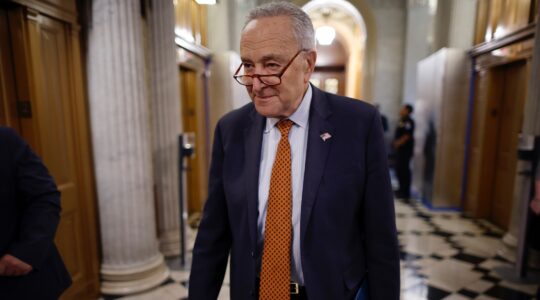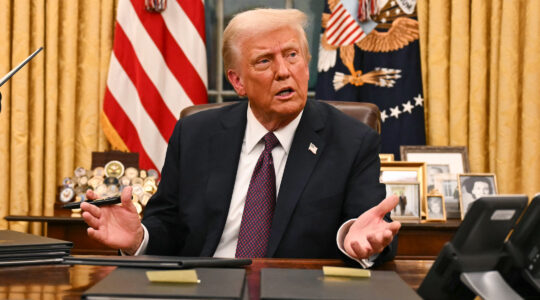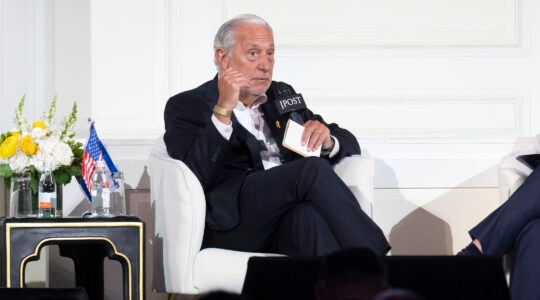NEW YORK (JTA) — Two former officials who served as the State Department’s special envoy to combat anti-Semitism called on President Donald Trump to fill the position and said they expected Congress to fund the envoy’s office in the coming budget.
The office of the envoy, whose job is to monitor and document anti-Semitism around the world, as well as work with foreign governments to fight it, has been vacant since Ira Forman left the job last year. Trump has not appointed a replacement, and Secretary of State Rex Tillerson questioned the need for the post earlier this month.
On July 1, the envoy’s office will be left unstaffed, as its two remaining employees are set to be reassigned.
In a conference call Monday organized for the media by the Anti-Defamation League, the two envoys who served under President Barack Obama said the position is necessary in order to coordinate and advance the monitoring work done in U.S. missions worldwide. They added that the envoy’s working definition of anti-Semitism helped U.S. personnel in foreign countries determine what is and is not anti-Semitism.
“If people aren’t being rounded up and sent to their death, many people in the State Department and Congress and many places feel there isn’t anti-Semitism,” said Hannah Rosenthal, the envoy during Obama’s first term. “These are things that don’t happen unless someone is responsible in the State Department for making sure it happens. That’s something both President Trump and Secretary Tillerson do not seem to get.”
While neither Rosenthal nor Ira Forman, the envoy during Obama’s second term, have spoken with the Trump White House staff about the issue, both expect Congress to push Trump to appoint someone to the post. The envoy position was created in 2004 through a bipartisan congressional vote, so Trump cannot formally eliminate it, though he can decline to fill it.
Forman said the State Department staff also recognizes the importance of the envoy office.
“I’ve spoken to former colleagues throughout the department periodically, and they’re anxious to be able to tell the story to their superiors in the department,” he said. “I have little doubt that Congress will weigh in in an extremely bipartisan way to direct the secretary to man this office.”
Tillerson questioned the need for the post during testimony June 14 to the foreign operations subcommittee of the U.S. House of Representatives Appropriations Committee.
“One of the questions I’ve asked is, if we’re really going to affect these areas, these special areas, don’t we have to affect it through the delivery on mission at every level at every country?” he asked. “And by having a special envoy, one of my experiences is, mission then says, ‘oh, we’ve got somebody else that does,’ and then they stop doing it.”
JTA has documented Jewish history in real-time for over a century. Keep our journalism strong by joining us in supporting independent, award-winning reporting.





